SAN ANGELO, TX — “Good morning. My name is ‘Dave’ and I live in the 1600 block of South Monroe. Long time Santa Rita resident. And I’m sorry that we all have to be here for this foolishness because we’re just talking about kids,” said a man who only introduced himself as ‘Dave’ to the San Angelo Planning Commission in a presentation that harkened memories of a John Belushi Saturday Night Live skit. ‘Dave’s’ performance could have been Belushi, with perfect timing, perfect voice tone and inflection.
“We’re not talking about a chapter house for the Sons of Anarchy, okay? It’s just a bunch of people [going] there in minivans, dropping their kids off for gymnastics,” Dave said.
He then launched into a personal attack upon San Angelo attorney and former San Angelo City Council member H.R. “Winkie” Wardlaw. Wardlaw is leading the charge to deny Lifepoint Baptist Church, 810 Austin St., the zoning exception to rent its long-underutilized gymnasium on church property located on the edge of the Santa Rita neighborhood to a private company, Texas Tumbleweeds, to teach gymnastics.
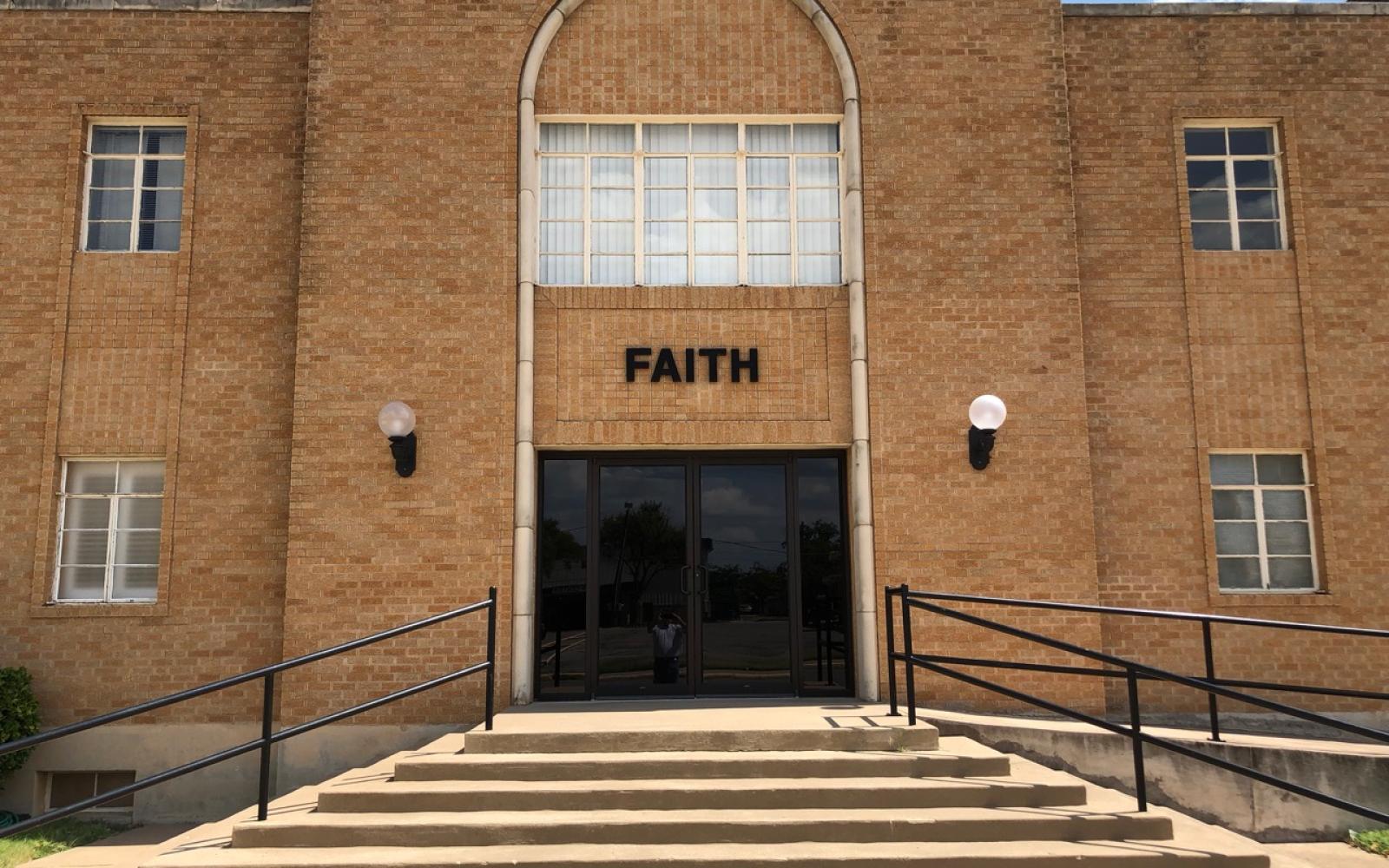
Lifepoint Baptist Church, 810 Austin St., in the Santa Rita area.
“And the fact that this gentleman wants to enrich himself? Shame on you,” ‘Dave’ said, turning around and pointing at Wardlaw who was very visibly perched in the front row of the audience. “That is just simply shameful that anybody would seek to enrich themselves over this situation.”
‘Dave’ believed that Wardlaw’s motions to recoup $100,000 in primarily attorney’s fees in a lawsuit Wardlaw filed against the City of San Angelo, Texas Tumbleweed, and Lifepoint Baptist Church, was an attempt to profit off the controversy.
At issue at the Planning Commission meeting held Monday morning, May 17, was to revisit a granted special use exception from the residential zoning designation awarded to Lifepoint Baptist Church’s gymnasium that allows a commercial business, Texas Tumbleweeds Gymnastics, to rent the facility from the church in order to hold regular gymnastics training for children.
Some Santa Rita residents are upset that the church was able to obtain this zoning exception from the City of San Angelo back in 2019. The church sits in residential zoning area, like many churches do. Commercial activities are generally forbidden in residential zoned regions of the city. Santa Rita residents including Wardlaw, Beverly Stribling, Patricia Thigpen Chandler, Elisa A. Herrington, June T. Doggett, William Caskeyand and Lawrence Ricci filed a lawsuit against Lifepoint, Texas Tumbleweeds, and the City of San Angelo after Lifepoint’s special use zoning exception was granted that allowed the church to lease the gym to Texas Tumbleweeds.
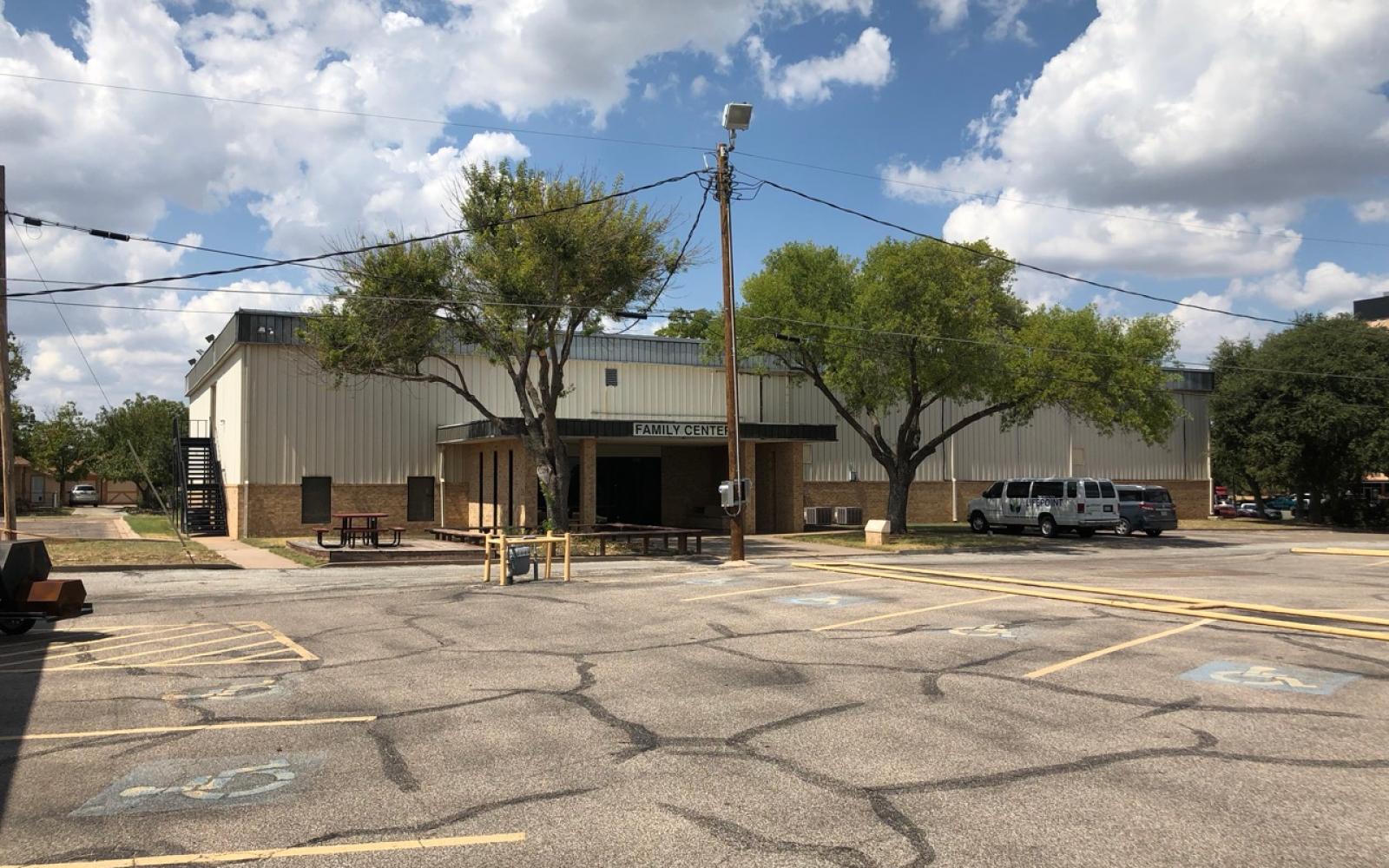
The gym that Lifepoint Baptist Church leases to Texas Tumbleweed Gymnastics located on the eastern edge of the Santa Rita neighborhood at 810 Austin St.
Wardlaw and company argued that the City has no authority to amend a zoning ordinance with a mere resolution rather than an overriding ordinance, and that the existence of Texas Tumbleweeds’ gymnastic classes “would bring hundreds of students and their parents, plus staff, into this residential neighborhood via automobiles six days per week.” Wardlaw et. al. also argued that the City mailed out only 24 notices of the proposed change, ignoring all but one resident of the River Terrace condominiums located 300 feet away.
The next court hearing on the lawsuit is scheduled for June 15. Wardlaw et. al. are seeking a summary judgement against the church, City and Tumbleweeds that includes $100,000 in monetary relief and attorney’s fees. The 51st District Court Judge Carmen Dusek will hear the case. The pending hearing may have been the catalyst that finds the City and its Planning Commission revisiting this special zoning exception.
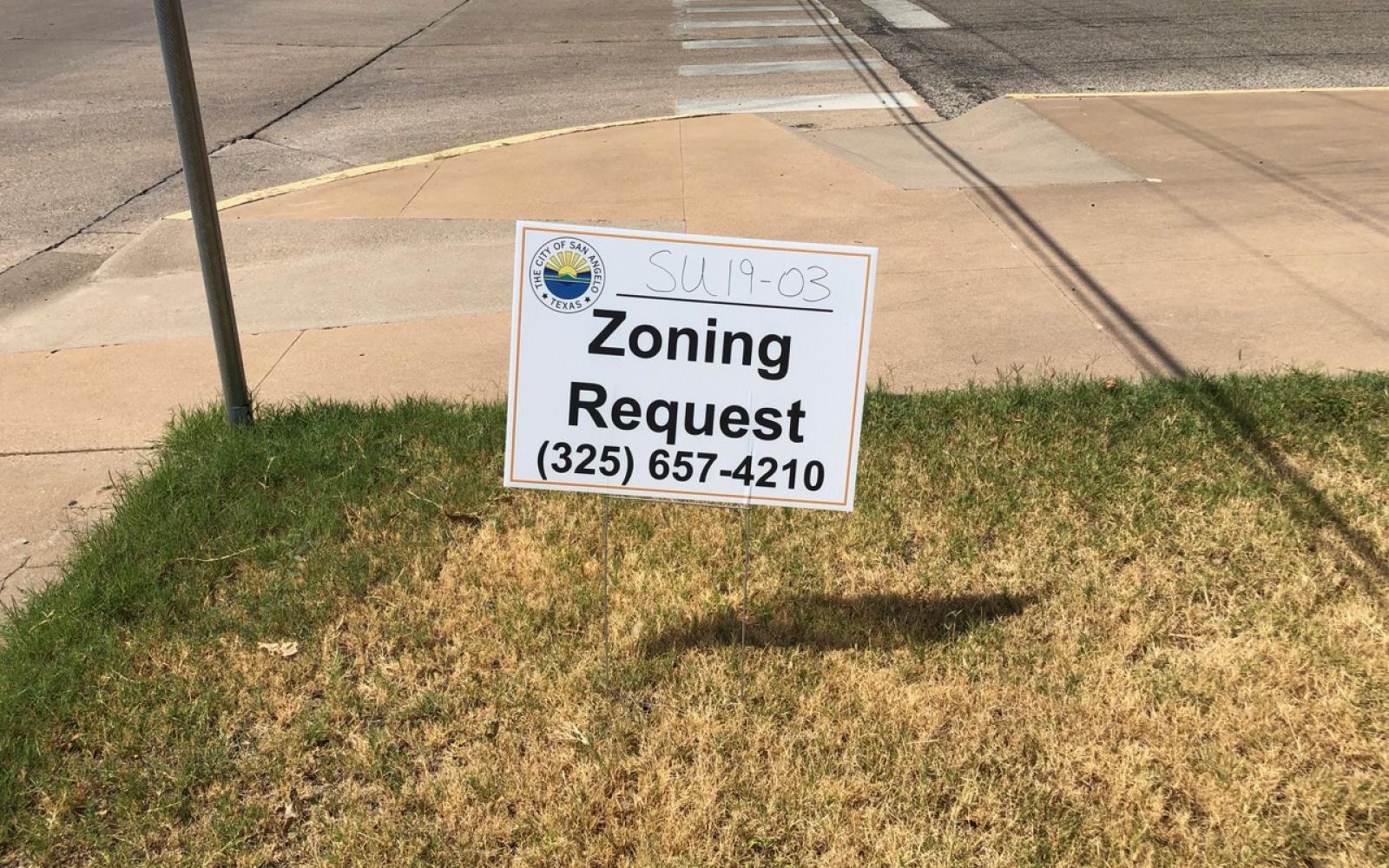
The sign for the zoning request at Lifepoint Baptist Church, 810 Austin St., in the Santa Rita area before the 2019 decision to grant the original exception.
Monday, opponents of the church argued that making the zoning exception will set a precedent for other exceptions in the future, and conceivably other residential properties in Santa Rita could be transformed into daycare centers or gyms, since the zoning exception narrowly defines those business types allowed. The other objection voiced was that the special use permit is assigned to the property, not the entity that owns the property. Should the church sell the property with the gymnasium, the special use permit will convey with the real estate to the property’s new owner. Then, who knows what kind of business will be established inside the residential neighborhood without a church guardian.
Also during his presentation, Wardlaw addressed the attack by “Dave.”
“I didn’t know I was evil for not charging anything [for work preparing the lawsuit]. It’s probably a reflection on my intelligence, but I just inherited the protectorship of Santa Rita since I’ve lived there all my life,” he said. Wardlaw has lived in the neighborhood for 70 years, he said. The $100,000 that the motion in the lawsuit requests is for costs including attorney’s fees and “non-monetary relief that intends to conduct discovery in the case…” The plaintiffs had hired an Abilene attorney and a Sweetwater attorney to represent them. Wardlaw claimed any and all of his legal work on the case was pro bono; it was assumed the plaintiffs are paying for the out-of-town lawyers and wanted the cash.
The defendants were represented by Grapevine attorney Dustin Gaines. He specializes in First Amendment cases involving churches. Gaines’ argument centered around a federal law and a state law that allows churches the freedom to use their property as the church leaders see fit.
He said prior to 2019, the gymnasium was not being used, so the church leaders locally wanted to find a way to repurpose the use of the facility to reach young people. At the same time, Texas Tumbleweed Gymnastics was looking for a place to teach gymnastics and present the sport from a perspective of a Christian worldview.
“Do all things to the glory of God,” Gaines described the gymnastics company’s mission.
The agreement between Lifepoint Baptist Church and Texas Tumbleweeds stated that the gymnastics company was to promote the Gospel and offer the “glory of Christ in all things.” At the same time, the church would offer spiritual oversight and guidance to Texas Tumbleweed.
Gaines said the structure of the agreement was to maintain of most importance the goal to promote the glory of Christ in all things. This goal was not contrary to statement of faith of Lifepoint Baptist Church, Gaines said. The gym classes have devotions and prayers. The church sees the lease as an outreach opportunity.
Since the agreement went into place in 2019, Gaines said there have been no complaints and the traffic has been minimal. In fact, the response had been outwardly positive. To make his point, he presented a 3-inch thick stack of printed emails in support of the Texas Tumbleweeds use of the gymnasium.
Gaines argued that the lease of the gymnasium is protected by a federal law called the Religious Land Use and Institutionalized Persons Act, or RLUIPA. The act specifically addresses the case before the City of San Angelo’s Planning Commission on Monday, he argued. Local governments may not make formal or informal decisions concerning the church’s use of the property that, “unreasonably limit[s] religious assemblies, institutions, or structures within a jurisdiction.” Gaines argued, based upon the agreement between LBC and Texas Tumbleweeds, that the gymnastics instruction was intertwined with the religious instruction and outreach goals of LBC.
Gaines pointed out that two blocks away, a secular RiverView Restaurant operates on the first floor of the River Terrace condominium building where there are frequent gatherings of local secular clubs and charities and political campaign parties. To wit, the existence of RiverView Restaurant with the same zoning exceptions as the church would, should the church now be denied the zoning exception, violate the RLUIPA. That is, municipalities cannot “treat churches or other religious assemblies or institutions on less than equal terms with nonreligious assemblies or institutions.”
“Just under 300 feet away, you have the exact same zoning scheme and the exact same special use permit that is being allowed for a secular purpose,” Gaines said. Prior to Gaines’ presentation, City Planning Director Jon James noted there are a total of 55 special use zoning exceptions, including RiverView’s, inside the Santa Rita neighborhood, accumulated over about 50 years.
Non-profits are exempt from taxes and unrelated business income is allowed, said Gaines. Even so, the lease pales in comparison to what the market value could be, he said, suggesting the lease amount is below market value. Religious use is of extreme importance to the law, he said.
During the Planning Commission’s discussion of the issue, Chairman Travis Stribling said he cannot get beyond the fact that the special use exception will convey with the property, not the current owners, LBC, should the property be sold.
“This approval goes with the land. If Lifepoint goes on to bigger and better things. If a portion of the property were to burn to the ground [and the church subsequently sells it], the rights we grant go with the land,” said Stribling. “My problem is having a commercial use to run with the land. It speaks to an erosion of our boundaries. I’d hate to see what could go in if the church were to sell that property.”
Real Estate Broker and Commissioner Teri Jackson spoke in favor of LBC. She said the special use exception was not absolute and could be revisited by the commission should the situation change. She also argued that churches have special rights.
“Churches are allowed by right to build in a residential area,” she said. She then reminded the commission that there are already 55 other zoning exceptions in Santa Rita to operate secular enterprises. With that, Jackson made a motion to approve LBC’s zoning exception, but the motion died with no other commissioner seconding it.
Chairman Stribling, whose mother is one of the plaintiffs suing the church, Texas Tumbleweed, and the City, took back control of the meeting and entertained any of the commissioners to make new motion.
Commissioner Brittany Davis noted that technically, the gymnasium would be zoned commercial. Stribing agreed. “This [zoning exception] is really broad,” he said. Stribling noted the church could sell off a portion of the land and the new owner could open another (though smaller) multi-use recreational facility, daycare, community outreach or educational programs business there. Those are the specific commercial use exceptions for the property with a perpetual life. The perpetual life of the zoning exception was his objection.
Commissioner Joe Spano then made a motion to deny the church the zoning exception. Davis seconded the motion.
City attorney Brandon Dyson interrupted before the vote was taken suggesting strongly that the commission make a couple findings before denying LBC the exception. Dyson’s concern was that the points made by LBC attorney Gaines had to be addressed. Then James told Stribling that Dyson could suggest what findings needed to be included and voted upon to prevent trouble in the future regarding religious use of land and property as addressed in state and federal law.
Dyson said the commission had to find a compelling government interest, such as public safety or complexion of the neighborhood, to deny the church the use of its land.
Stribling ignored the advice, declaring that he had a motion on the floor. “I’d like to take a vote,” he said.
Stribling, Spano and Davis voted against the church; Jackson and Uherik voted in LBC’s favor.
The commission’s recommendation will be placed on the next available San Angelo City Council agenda for their final word of whether Lifepoint has the right to lease its gymnasium to a Christian-based gymnastics business inside the Santa Rita neighborhood.
When the church was originally granted the zoning exception by the city council in September 2019, the councilman representing that district SMD 5, Lane Carter, made the motion in favor of LBC. SMD 2 Councilman Tom Thompson seconded the motion. The vote to approve the exception was unanimous except for the vote of SMD 4 Councilman Harry Thomas. The next time this issue comes up at the city council, the only change to the council is Larry Miller who replaced Billie DeWitt, SMD 6.
Subscribe to the LIVE! Daily
Required


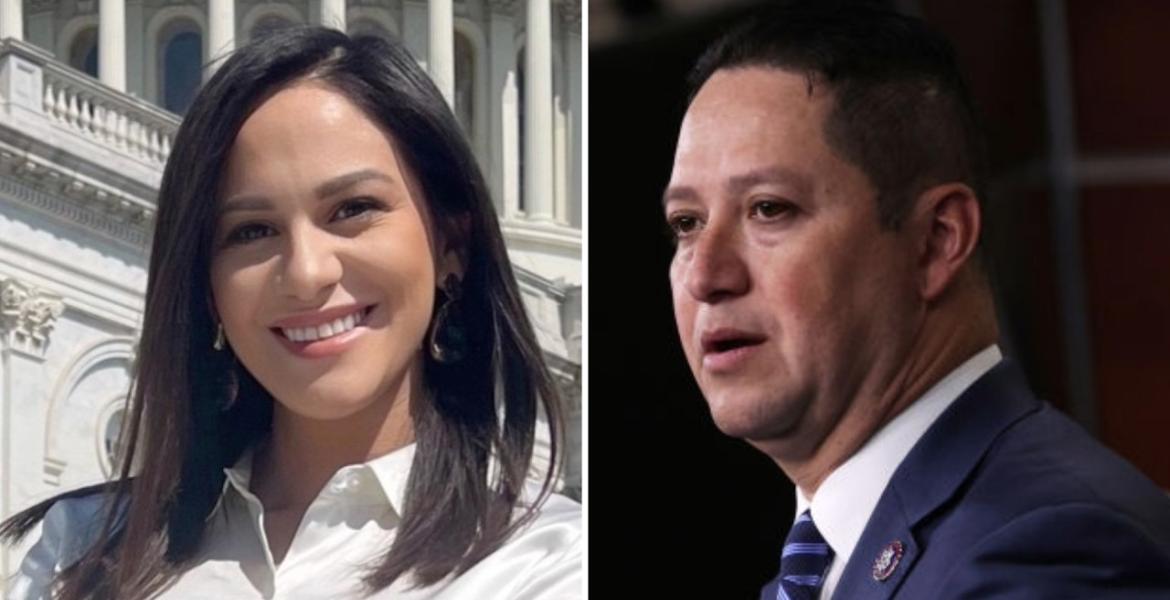
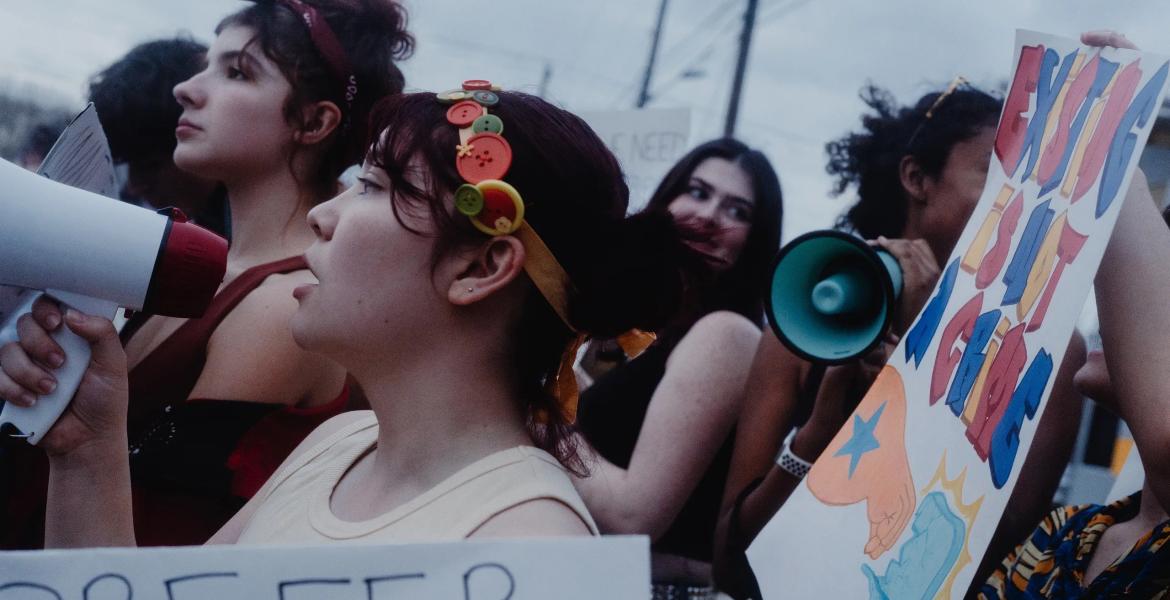
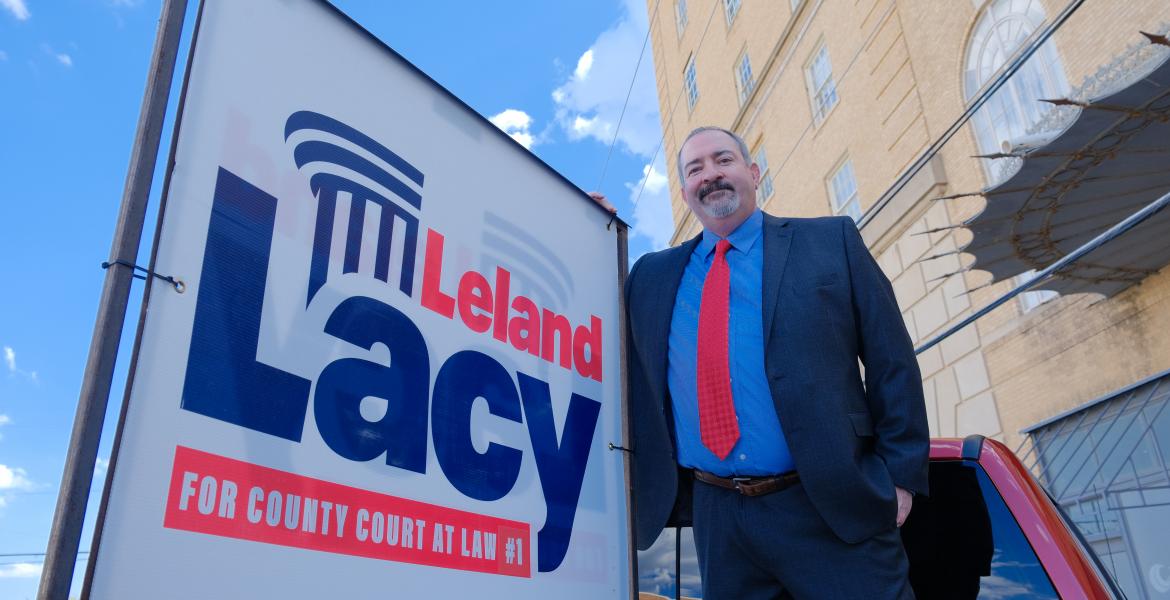

Comments
Listed By: len boling
I know this is just the OLD blue bloods trying to keep their neighborhood JUST a little better than everyone else’s, but how does the son of a litigant not recuse himself from the vote on the subject of a lawsuit?
- Log in or register to post comments
PermalinkListed By: Miles McMillan Sr.
I missed the kicking Jesus part.
- Log in or register to post comments
PermalinkListed By: Stinky Jenkins
This is what San Angelo has turned into? The National Enquirer?
- Log in or register to post comments
PermalinkListed By: Miles McMillan Sr.
Check out the Buffalo Gap paper! But these ReQpublicans now are way better. Than catching Covid!!
- Log in or register to post comments
PermalinkListed By: Shawn Compton
I think the residents of Santa Rita should be more concerned about the dope houses and thugs living in the neighborhood.
- Log in or register to post comments
PermalinkListed By: Miles McMillan Sr.
Or the repuQ's in the statehouses.
- Log in or register to post comments
PermalinkListed By: Miles McMillan Sr.
"The Q-enquirer"
- Log in or register to post comments
PermalinkListed By: Janet Senatore
This is the reason Park Heights moved....same bunch of blue bloods.
- Log in or register to post comments
PermalinkPost a comment to this article here: